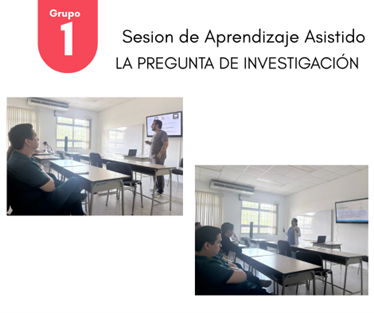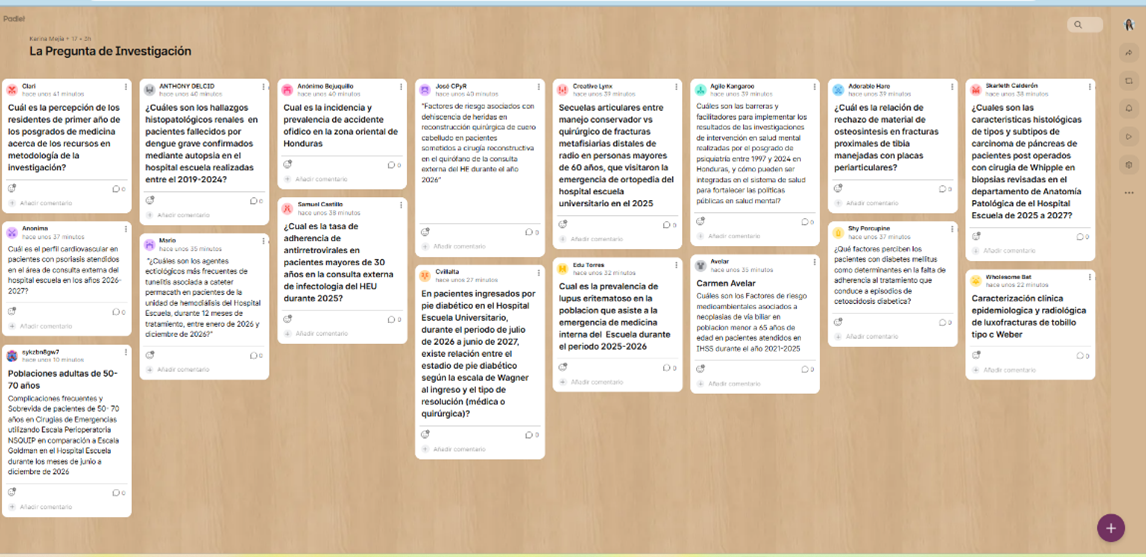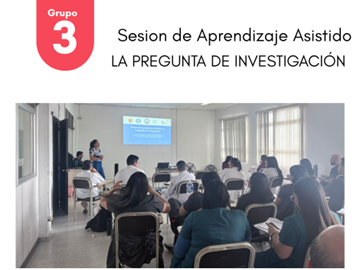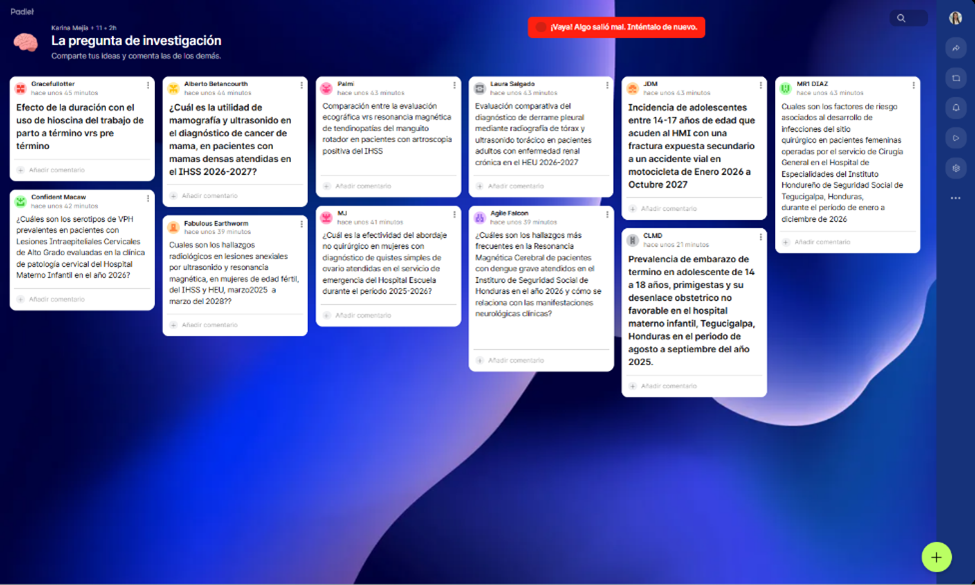Assisted Learning Sessions in Research Methodology: The Research Question for UNAH Medical Residency Programs
Between October 28 and 30, 2025, three Assisted Learning Sessions in Research Methodology titled “The Research Question” were held, organized by the General Coordination of Graduate Programs of the Faculty of Medical Sciences at the National Autonomous University of Honduras (UNAH) and the Research and Academic Management Unit of Hospital Escuela, with the support of The Global Health Network Latin America and the Caribbean (TGHN LAC) Honduras team.
Prior to the session, participants registered on The Global Health Network Latin America and the Caribbean (TGHN LAC) Platform (https://lac.tghn.org/) and completed the online course The Research Question.
During the activities, topics were addressed related to strategic research lines, postgraduate work regulations, ethical considerations, and the use of academic tools such as ORCiD and Google Scholar. In addition, the algorithm for the development of research projects conducted in and with Hospital Escuela was presented.
The session was facilitated by the TGHN LAC Honduras team and the Research and Academic Management Unit of Hospital Escuela, enabling participants to formulate and analyze research questions considering their pertinence, relevance, and feasibility within the clinical and academic context.
Each session was held in person at the Faculty of Medical Sciences as part of the Assisted Learning Sessions Program in Research Methodology, promoted by the Research and Academic Management Unit of Hospital Escuela and The Global Health Network Latin America and the Caribbean.
These sessions, aimed at medical residents from various specialties, sought to strengthen research capacities applied to clinical practice, promoting the formulation of relevant and feasible research questions within the institutional context.
Group 1
On Tuesday, October 28, 2025, the first session was held with the participation of 12 medical residents from the Ophthalmology and Neurology programs.

Residents from the Ophthalmology and Neurology programs participate in the Assisted Learning Session “The Research Question”, held at the Faculty of Medical Sciences.
Group 2
On Wednesday, October 29, 2025, the second session was held, directed at 62 medical residents from the Internal Medicine, Psychiatry, Plastic Surgery, Neurology, General Surgery, Orthopedics and Traumatology, and Pathology programs.


Medical residents formulated and shared their research questions on the Padlet digital platform during the Assisted Learning Session “The Research Question”.
Group 3
On Thursday, October 30, 2025, the third session took place with the participation of 30 medical residents from the Gynecology and Obstetrics, Radiology, Pathology, Internal Medicine, Orthopedics, and General Surgery programs.

The team of The Global Health Network Latin America and the Caribbean (TGHN LAC) supported residents in identifying the key elements that define a good research question, as part of the Assisted Learning Session held at Hospital Escuela.

Medical residents formulated and shared their research questions on Padlet during the Assisted Learning Session “The Research Question”.
Support the community
Thank you for visiting The Global Health Network, please take a moment to read this important message. As you know, our aim is to enable equity in access to research knowledge and this is successfully delivering support and training to 1000’s of research teams all over the world. But we need your support!. If you have benefited from this research skills and knowledge sharing facility, please help us sustain this remarkable and unique provision of information for those who could otherwise not access such support and training. We would be really grateful if you could make a donation or ask your employer or organisation to contribute to the costs of maintaining this platform and the generation of new contents for all users. Just a small contribution from everyone who can afford to pay would keep this available for those who cannot. Thank you, we really appreciate your part in this community effort to better equity in global health research.
